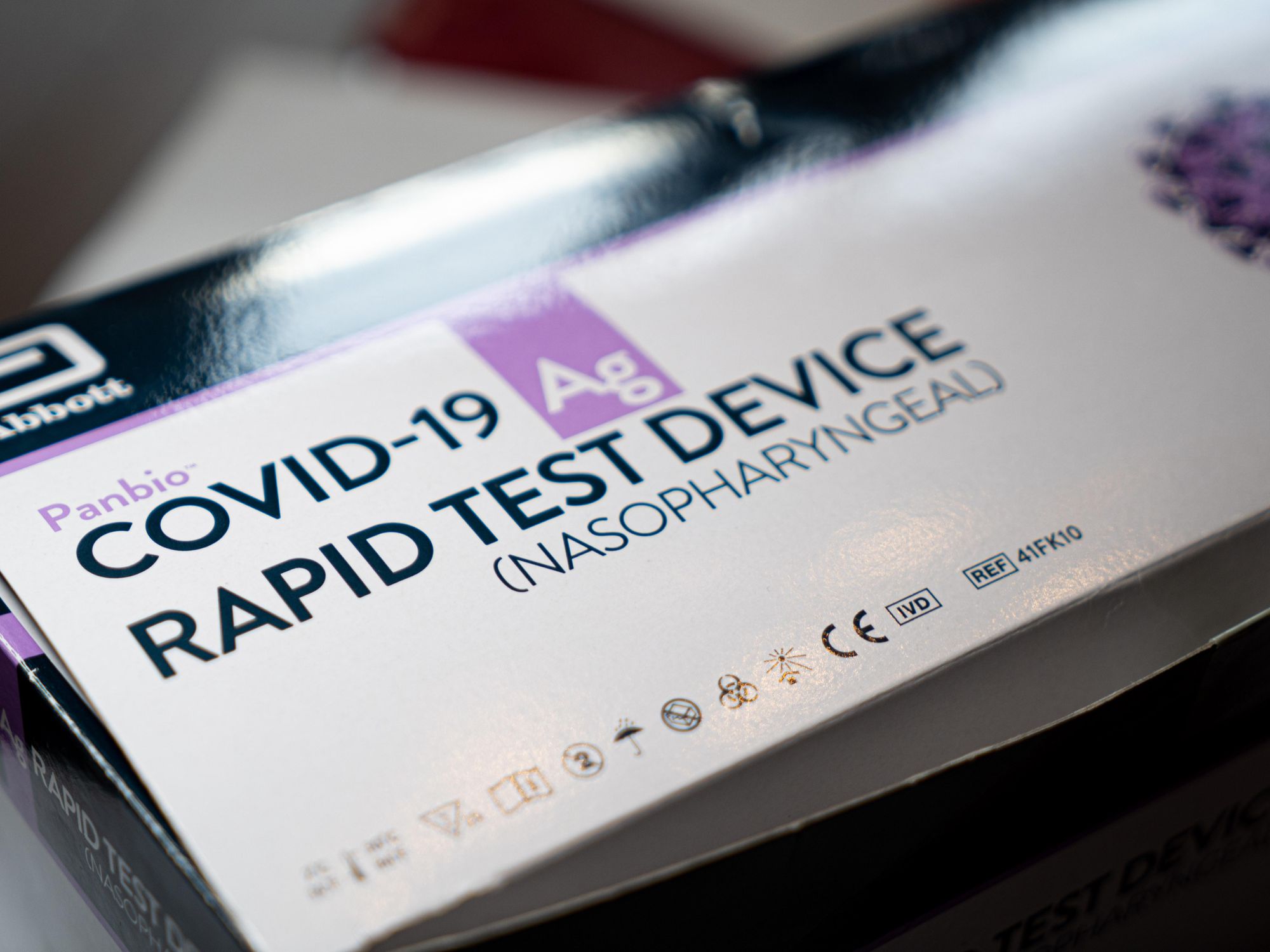A Year Into the Pandemic, COVID-19 Tests Can Be ‘Cheaper Than a Latte’
Breanna de Vera is dot.LA's editorial intern. She is currently a senior at the University of Southern California, studying journalism and English literature. She previously reported for the campus publications The Daily Trojan and Annenberg Media.

In the first few months of the pandemic, there was no way to buy a COVID-19 test. Then, tests were only done in labs and took several days, if not weeks. So in July, Culver City-based XPRIZE offered $5 million to any group that could make testing accessible and affordable for companies and schools trying to reopen.
On Tuesday, XPRIZE named five winners all developing tests that take less than 12 hours, cost $15 or less and are relatively less painful than the nasal swabs or as Jeff Huber, the XPRIZE Rapid COVID Testing Tech Lead and co-founder of OpenCovidScreen, call them "nasal torture devices."
One solution called the V-CHEK by Carlsbad-based Reliable LFC takes only 10 minutes to determine whether someone is COVID-19 positive. It is the only antigen testing solution among the winners; the other four are RNA testing, which can be slower, though more accurate.
"'Drive-thru testing center' is a misnomer," said Bill Pagels, CEO of Reliable LFC. "Most of them are not drive-thru testing centers, they're drive-thru sampling centers. So what we plan to do is make sure they are drive-thru testing centers, and provide people with results on the spot."
V-CHEK will likely receive FDA emergency use authorization in the next few months, and begin rolling out its tests to in-car testing centers. Pagels said military units and airports are also target markets where the speed of testing is imperative.
ChromaCode and Mirimus already have commercial solutions available, and the other three teams are in the process of regulatory approval, according to Huber.
Other winners include the La Jolla Institute for Immunology and Alveo Technologies. All will each receive $500,000 to develop their solutions and produce enough to deploy on a large scale. After a successful large scale rollout to testing centers and other target markets, the teams will each receive another $500,000.
In addition to their accuracy and safety, the teams were judged across four factors in COVID-19 testing: frequency, quick turn around, affordability and ease. Testing regularly is one of the key components to safely open schools and businesses, Huber said. Because of this, the deep nasal swabs from earlier in the pandemic with a multi-day wait for results aren't a feasible solution for most consumers, especially when tests were running over $100 each.
"Our target for the competition was that you should be able to get a high-quality test for less than the price of a latte," said Huber. "We relaxed that a little bit to expand the pool, But the goal — the absolute cutoff — was a test result for less than $15."
Over 700 teams applied to the competition. The XPRIZE judges narrowed the pool down to 200. Each team was sent a set of synthetic samples, which they tested and then returned the results. 20 semifinalists were selected, and they sent their testing kits to independent XPRIZE judges at two different laboratories to be clinically validated.
Four other teams were selected for the Open Innovation Track, for solutions that couldn't be tested using XPRIZE's methods. Some are breathalyzer tests, and because of the difficulty of capturing a breath sample, they were not able to be tested like the other competitors. They'll share a prize pool of $1 million.
- Curative Inc. Brings COVID-19 Testing Kiosks to Los Angeles - dot.LA ›
- Curative Inc. is behind L.A.'s plan to test every resident for COVID-19 ›
- XPrize Puts Up $5 Million to Jumpstart Faster, Cheaper COVID-19 ... ›
- XPRIZE offers $1.5 million for rapid Covid-19 detection via CT Scan ... ›
Breanna de Vera is dot.LA's editorial intern. She is currently a senior at the University of Southern California, studying journalism and English literature. She previously reported for the campus publications The Daily Trojan and Annenberg Media.




 Image Source: Skyryse
Image Source: Skyryse
 Image Source: Northwood Space
Image Source: Northwood Space